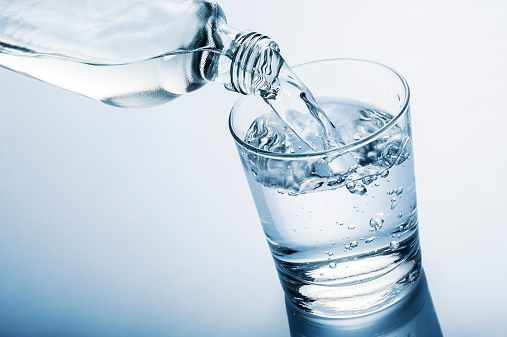
All about the water you drink
22 March: World Water Day.
Everyone knows the chemical formula of water: H2O. Two hydrogen molecules and one oxygen molecule. However, the water we drink, shower in and cook with every day contains some more elements from the periodic table.
Our drinking water is filtered and treated, which is why it also contains what are known as ‘constituents”. Gases, minerals and organic components affect its transparency, acidity, alkalinity or quality.
Depending on the geographic area, water has different mineralisation. The hydrography and geology of the land, meteorological conditions and soil quality also have an influence.
In order to benefit public health, mineral nutrients are added to water during the treatment process. To make it suitable for consumption, it is disinfected, which removes 99% of potential contaminating agents, and its acidity is adjusted, depending on the area of origin.
Generally speaking, the tap water we consume has been treated to eliminate contaminants, and fluoride is added to protect our teeth from caries.
There are also:
- Natural mineral waters. These contain minerals that have not been added artificially.
Some of these have very weak mineralization, with residues below 50mg/l. These types of water are recommended for people with kidney problems and for infants. Water with stronger mineralisation, with residue in excess of 1000mg/l can be helpful, among other uses, for replacing salts in places where temperatures are extremely high.
- Medicinal mineral waters are taken from underground sources and are said to have therapeutic properties because of the minerals that they contain and the temperature at which they appear in nature.
- Carbonated and bio-carbonated waters contain gases and bicarbonate, which neutralise gastric secretion and relieve digestive disorders.
- According to the other minerals that they contain, you will find:
Sulphated water, with sulphate, which is good for the skin and the digestive tract.
Chloride-containing water, with chloride that stabilises fluids in the body.
Calcerous water, which contains calcium for the bones.
Ferruginous water, with iron for the blood.
Sodium-rich water, with additional sodium for nerve impulses.
Waters containing magnesium, which relaxes the muscles.
Whichever water you choose, remember the benefits:
- It carries nutrient inside the cells.
- It eliminates waste from the body.
- It regulates body temperature.
- It improves the digestion and the metabolism.
- It lubricates the joints, ligaments, tendons, skin and mucous membranes.
Remember that your recommended daily water intake is two litres or eight glasses of water.
Always ensure that you know where the water you are using comes from and be responsible. It belongs to all of us, it is sorely needed and is a scarce resource in some parts of the world.
